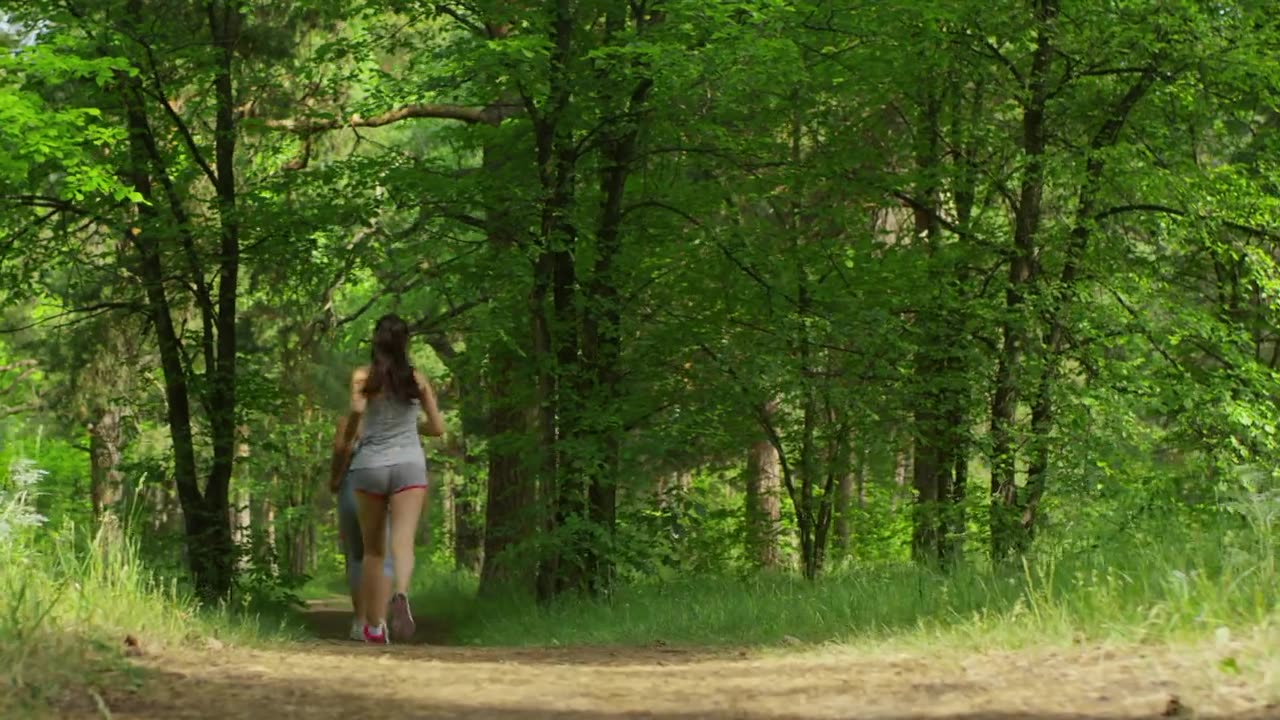Premium Only Content

Physical activity
Key facts
Physical activity has significant health benefits for hearts, bodies and minds
Physical activity contributes to preventing and managing noncommunicable diseases such as cardiovascular diseases, cancer and diabetes
Physical activity reduces symptoms of depression and anxiety
Physical activity enhances thinking, learning, and judgment skills
Physical activity ensures healthy growth and development in young people
Physical activity improves overall well-being
Globally, 1 in 4 adults do not meet the global recommended levels of physical activity
People who are insufficiently active have a 20% to 30% increased risk of death compared to people who are sufficiently active
More than 80% of the world's adolescent population is insufficiently physically active
WHO defines physical activity as any bodily movement produced by skeletal muscles that requires energy expenditure. Physical activity refers to all movement including during leisure time, for transport to get to and from places, or as part of a person’s work. Both moderate- and vigorous-intensity physical activity improve health.
Popular ways to be active include walking, cycling, wheeling, sports, active recreation and play, and can be done at any level of skill and for enjoyment by everybody.
Regular physical activity is proven to help prevent and manage noncommunicable diseases such as heart disease, stroke, diabetes and several cancers. It also helps prevent hypertension, maintain healthy body weight and can improve mental health, quality of life and well-being.
In a 24-hour day, children 1-2 years of age should:
spend at least 180 minutes in a variety of types of physical activities at any intensity, including moderate- to vigorous-intensity physical activity, spread throughout the day; more is better;
not be restrained for more than 1 hour at a time (e.g., prams/strollers, high chairs, or strapped on a caregiver’s back) or sit for extended periods of time.
For 1 year olds, sedentary screen time (such as watching TV or videos, playing computer games) is not recommended.
For those aged 2 years, sedentary screen time should be no more than 1 hour; less is better.
When sedentary, engaging in reading and storytelling with a caregiver is encouraged; and
have 11-14h of good quality sleep, including naps, with regular sleep and wake-up times.
-
 LIVE
LIVE
TimcastIRL
54 minutes agoTrump THREATENS To SUSPEND Habeas Corpus To BYPASS Judges Blocking Deportation | Timcast IRL
29,975 watching -
 1:14:13
1:14:13
Glenn Greenwald
2 hours agoLee Fang and Leighton Woodhouse Look Back on Trump’s First 100 Days; Lara Friedman on New Laws Barring Israel Criticism | SYSTEM UPDATE #446
50.4K21 -

Right Side Broadcasting Network
5 days agoLIVE: Exclusive White House Special: President Trump's First 100 Days - 4/30/25
40.7K11 -
 1:02:30
1:02:30
BonginoReport
4 hours agoFBI Demotes Woke Agents Who Kneeled for George Floyd (Ep. 38) - Nightly Scroll with Hayley
84.9K60 -
 2:08:04
2:08:04
Tucker Carlson
2 hours agoMatt Walsh: Any country that can’t function without American aid has no right to exist.
75.6K105 -
 14:09
14:09
China Uncensored
6 hours agoThis Is China's LAST CHANCE Survive the Tariff War
5.34K3 -
 43:48
43:48
The Kevin Trudeau Show
10 hours agoHow I Manage My Time (And Get 10x More Done)
2134 -
 LIVE
LIVE
The Jimmy Dore Show
2 hours agoTrump BLASTS ABC Over Biden Coverup! Senator Calls Jews “Masters of the Universe!” w/Dane Wigington
10,994 watching -
 1:24:31
1:24:31
Kim Iversen
4 hours agoPutin's ONLY Option To End The War Is TOTAL TAKEOVER Of Ukraine | Scott Horton
50.9K27 -
 LIVE
LIVE
Quite Frankly
7 hours ago"Atlantis, Open Lines, RFK & Geo-Engineering" ft The Observation Lounge 4/30/25
924 watching